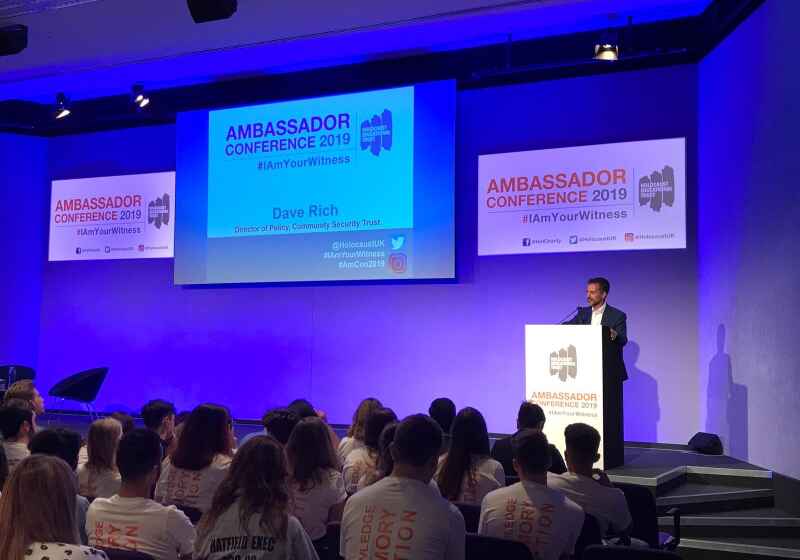CST Blog
Rewriting history: Holocaust Revisionism Today
13 December 2012
Hope not Hate have published a new ebook charting the changes in Holocaust revisionism since the David Irving libel trial in 2000. Rewriting history: Holocaust Revisionism Today explains the history of neo-Nazi Holocaust revisionism; connections between British revisionists and the Iranian government; and the way that some opponents of Israel either ignore Holocaust revisionism or even use it themselves.
The ebook can be downloaded here in pdf and epub formats and is sure to become an indispensable resource. It was launched at a meeting in Parliament yesterday co-sponsored by CST and the Holocaust Educational Trust.
Hope not Hate explain the reasons they wrote the booklet here:
Rewriting history: Holocaust Revisionism Today builds upon a similar publication we produced in 2000, in the immediate aftermath of David Irvings failed libel action. It seeks to take stock of how the Holocaust revisionist movement has changed in the intervening decade. The publication examines how its arguments have morphed and adapted in order to continue its primary function of raining down derision, defamation and hatred upon Jews. It looks at those who deny the Holocaust happened, those who question key facts in order to deliberately undermine its significance and those who attempt to relativise it in order to compare it to other conflicts and persecutions.
In particular this ebook looks at how Holocaust deniers and revisionists have sought to overhaul their antisemitic arguments in order to make them relevant for a broader public and more specifically to reach out to some in Muslim countries on the basis of my enemys enemy is my friend. How to do this whilst still retaining their focus on attacking Jews and Judaism has led the majority of Western Holocaust deniers, including many in Britain, to attempt to inject their antisemitic politics into the politics of anti-Zionism. This ebook also examines the interaction of Western Holocaust deniers, including those from Britain who are in the vanguard of this movement, with their counterparts in the Middle East (and especially Iran) where their spurious and hateful arguments have a long history of being accorded a hearing unthinkable in Western society.
More specifically Rewriting history: Holocaust Revisionism Today charts:
- The declining influence of traditional Holocaust Denial on the European far right;
- How the UK is the key bridge between the old style far right Holocaust Deniers and political actors in the Middle East who are increasingly using adopting both denial and revisionism as tools against Israel;
- The on-going global network and activity that was created by the Tehran conference in 2006;
- The explosion of Holocaust Revisionism and Holocaust Relativism in Eastern Europe in recent years and how much of this is in the political and academic mainstream;
- How some on the political left, particularly in Britain, at best ignore Holocaust Revisionism and at worst adopt it as part of their anti-Zionist/anti-Israel discourse;
- The key players in Holocaust Revisionism and profiles over 40 people.
There should be no place for Holocaust denial or antisemitism of any kind and it is imperative that we speak out against it in whatever form it takes and from whatever quarter it comes.
The Holocaust is one of the most horrific and systematic mass killings in modern world history and that is why it is so important that younger generations are taught about it. Just like the genocide in Rwanda, the killing fields of Cambodia and the deliberate murders of men and boys in Srebrenica, the Holocaust is the consequence of the politics of hate. The actors and audience of modern day Holocaust Revisionism might be different from what it was when David Irving went to the High Court in his failed bid to sue Deborah Lipstadt but the underlying motive is the same.



